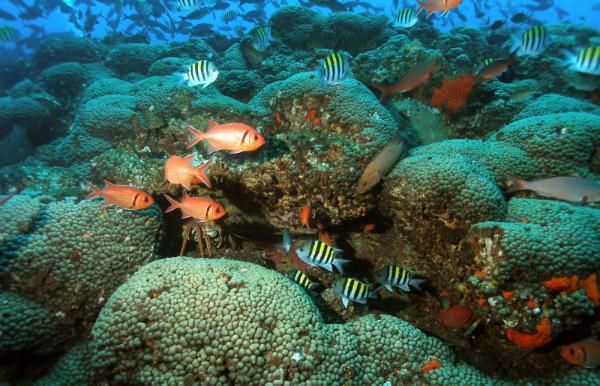SOURCE: Kera News
DATE: December 26, 2019
SNIP: Without a significant reduction in greenhouse gas emissions, coral reefs throughout the Gulf of Mexico are likely to face widespread bleaching and collapse by the end of the century, according to a new report from several research universities.
Researchers from Rice University, the University of Texas at Austin and Louisiana State University used climate models to project future changes in the Gulf’s waters, from Texas to Florida. Specifically, they looked at factors that stress coral reefs, such as temperature rise and acidification.
“All of the trends are negative in that we find that the oceans are warming; the ocean is becoming more acidic. Everything that is conducive to coral health is being degraded rapidly,” said Sylvia Dee, an assistant professor of Earth, environmental and planetary sciences at Rice.
“What we can say with certainty is that by the end of the 21st century it is highly likely, and almost certain, that many of the coral reef communities in the Gulf of Mexico will be undergoing heating conditions and acidification conditions that are likely to destroy them.”
The Gulf Coast is home to numerous coral reef systems, many of which are inside protected areas such as Florida’s John Pennekamp state park and the Flower Banks National Marine Sanctuary off the coast of Galveston. The reefs support fisheries, help protect coastlines and contribute to tourism, Dee said.
The researchers also looked at other factors contributing to poor coral health, such as runoff pollution, coral mining and over-fishing.
“Those are problems that could be eradicated now, those things could be stopped immediately,” she said.

